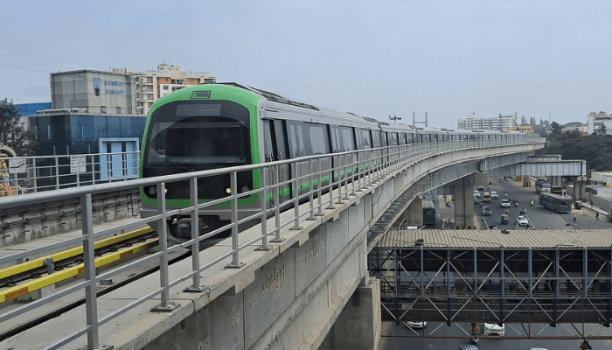In recent years, rail transport appears to have gotten a new lease of life in Nigeria, particularly with some major routes.
The federal government efforts to boost export and earn more foreign exchange has received some boost with the revamping of some major rail infrastructure in the country.
Transportation is a critical factor in economic growth and development.
It is a wealth creating industry on its own and inadequate transportation limits a nation’s ability to utilise its natural resources, distributes foods and other finished goods, integrates the manufacturing and agriculture sectors and supplies education, medical and other infrastructural facilities.
There is the need therefore to maintain and improve the existing transportation and build new infrastructures for national wealth.
In Nigeria’s transportation sector, railways are said to be one of the viable or seamless ways to improve trading activities in a country thereby boosting the economy.
Yemi Osinbajo, former vice president of Nigeria said that an active and vibrant railway system confers many benefits in the society.
BusinessDay is taking a look at five major rail projects that have been given new lease of life and in no particular order, they are:
Lagos-Ibadan standard gauge rail
The 157 kilometres long standard gauge railway between Lagos and Ibadan began construction in March 2017 and was inaugurated on June 10, 2021. It is the first double-track standard gauge line in West Africa.
It was completed within a record time of four years, the line was built with an extension of about 7 km to join the rail line to Apapa Port.
It plays a key role in promoting the development of export-oriented economies in the surrounding areas.
Read also: FG turns to LNG-CNG for Rail transport as diesel price soars
Abuja-Kaduna railway Project
The Abuja-Kaduna railway is a modern railway infrastructure spanning a total length of 186.5 kilometers. It adheres to Chinese railway technology standards, with a designed maximum speed of 150 km/h.
This railway project has added a vital transport artery from Nigeria’s capital, Abuja, to the significant industrial city of Kaduna in the north.
A report titled “A Review of the Socio-economic Impacts and Planning Implications of Abuja-Kaduna Rail Transport System” stated that by improving connectivity, the railway has enhanced the investment climate, boosted trade, and facilitated the movement of people and goods.
It has also catalysed economic growth along its route and in urban areas, particularly fostering commercial development around its passenger stations.
Lagos Blue Line Rail Project
The Blue Line is an electric rapid transit line that runs in Lagos, Nigeria, and it is the city’s first urban train.
It is part of the Lagos Rail Mass Transit System run by the Lagos Metropolitan Area Transport Authority (LAMATA).
The first phase with five stations and 13 kilometres (8.1 mi) of track opened on 4 September 2023. The full line is set to be 27 kilometres (17 mi) and is expected to carry 500,000 passengers daily.
Abuja Light Rail project
Abuja Rail Mass Transit (commonly known as Abuja Light Rail) is a regional rail transport system in the Federal Capital Territory of Nigeria.
It was the first rapid transit system in the country, West Africa, and the second such system in sub-Saharan Africa (after Addis Ababa Light Rail).
The first phase of the project connects the city center to Nnamdi Azikiwe International Airport, stopping at the Abuja-Kaduna Railway station in Idu.
The Abuja Metro Line was launched on 12 July 2018 and a three-trains-per-day service opened for passengers the following week. Passenger services on the line were suspended in early 2020 due to the COVID-19 pandemic and were reopened on May 29, 2024.
Port Harcourt – Maiduguri railway project
The Port Harcourt to Maiduguri railway project, a $3.2 billion initiative, aims to reconstruct and expand the existing narrow-gauge railway line, connecting the south to the northeast of Nigeria, with branch lines to Owerri and Damaturu, and is being overseen by the Federal Ministry of Transport.

